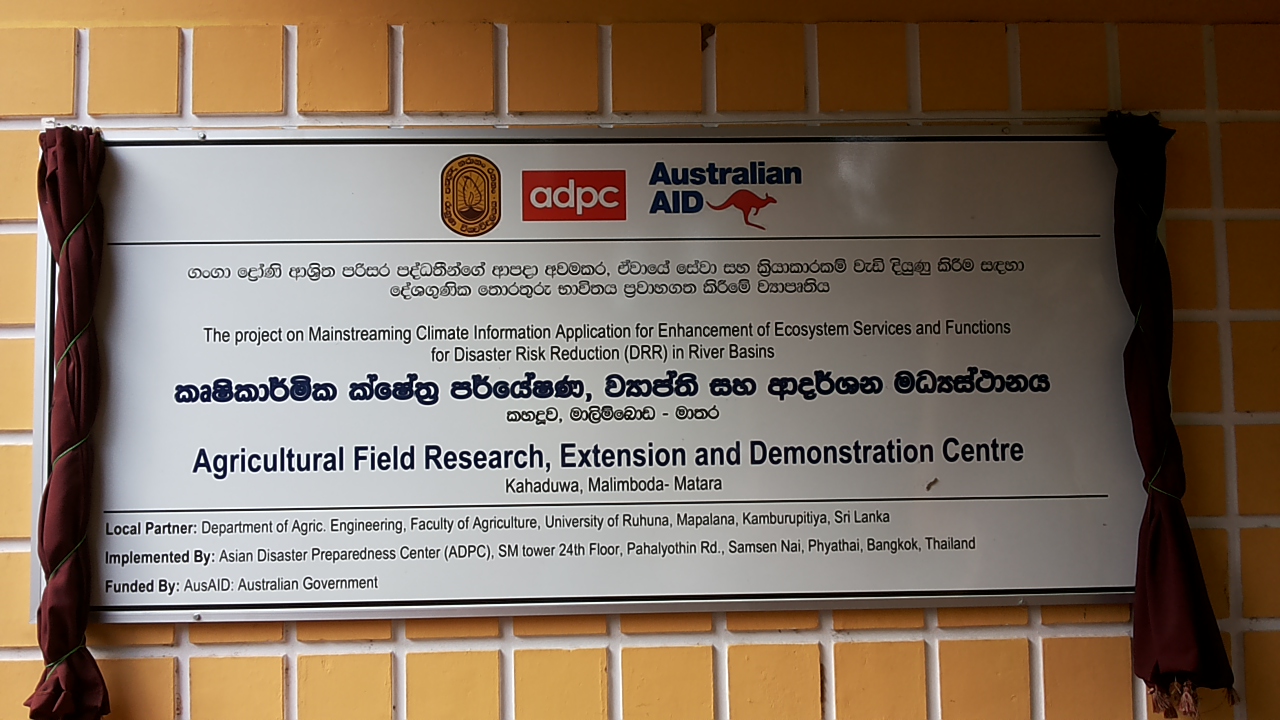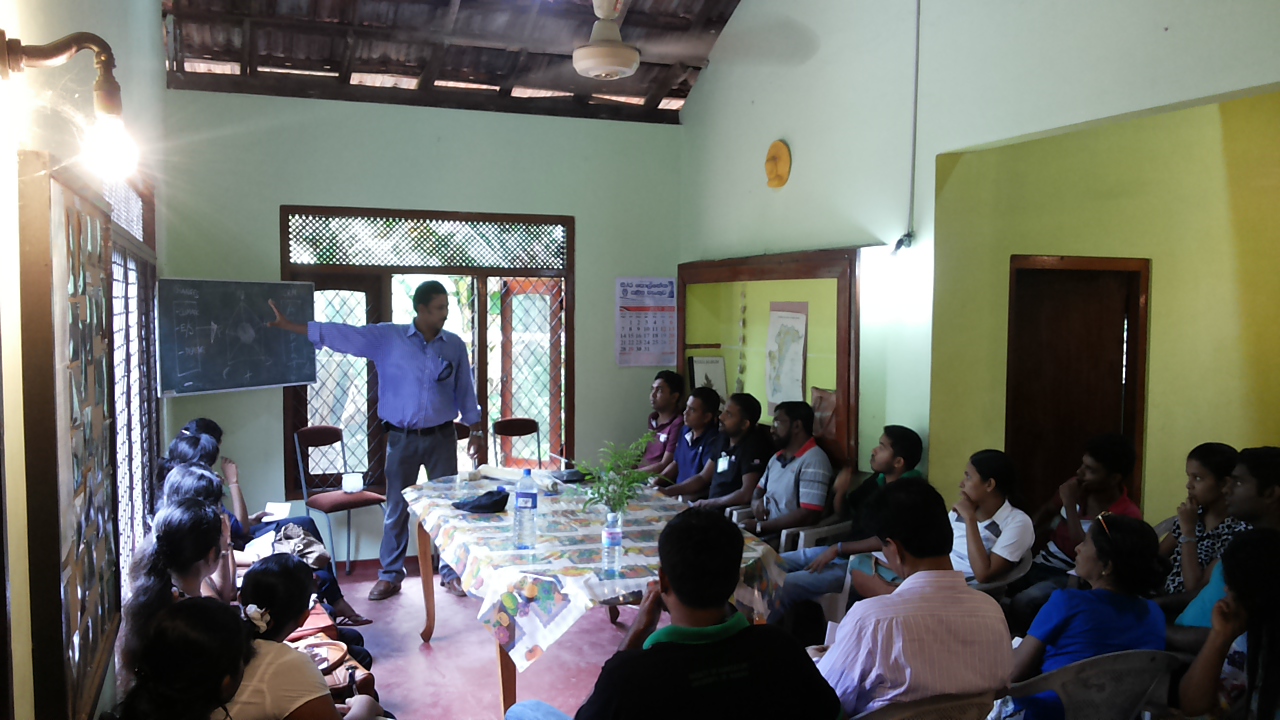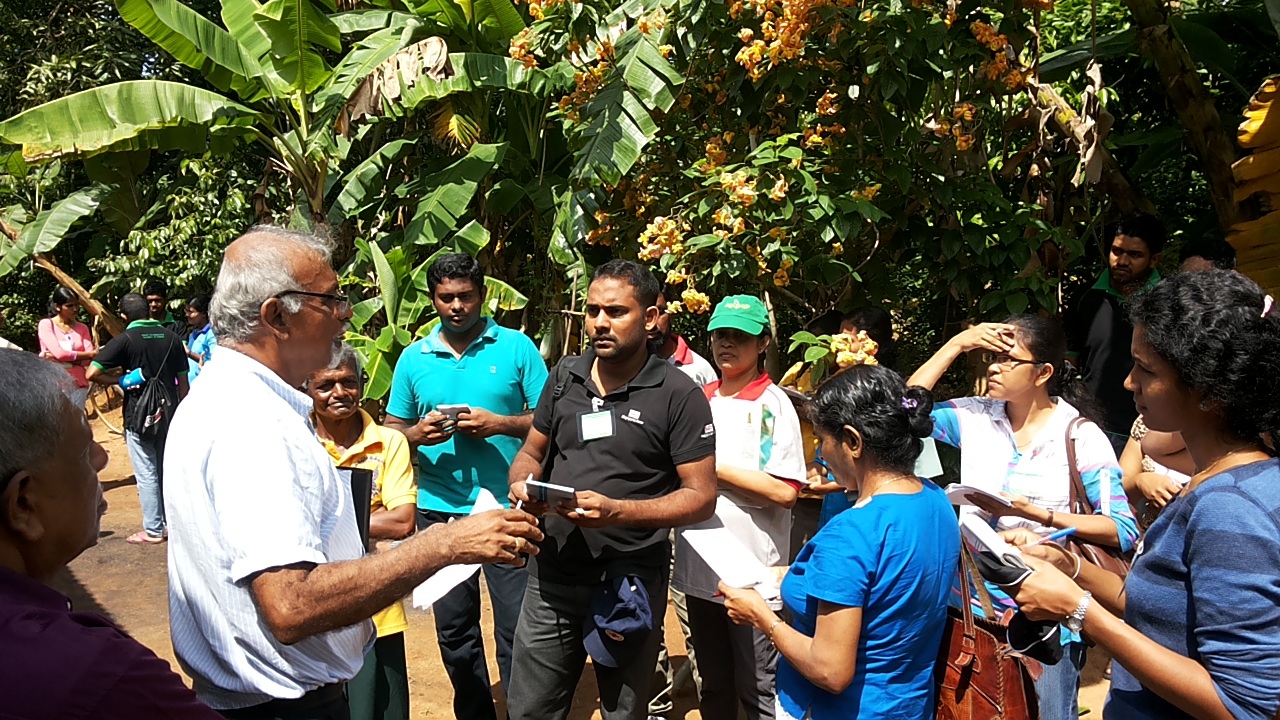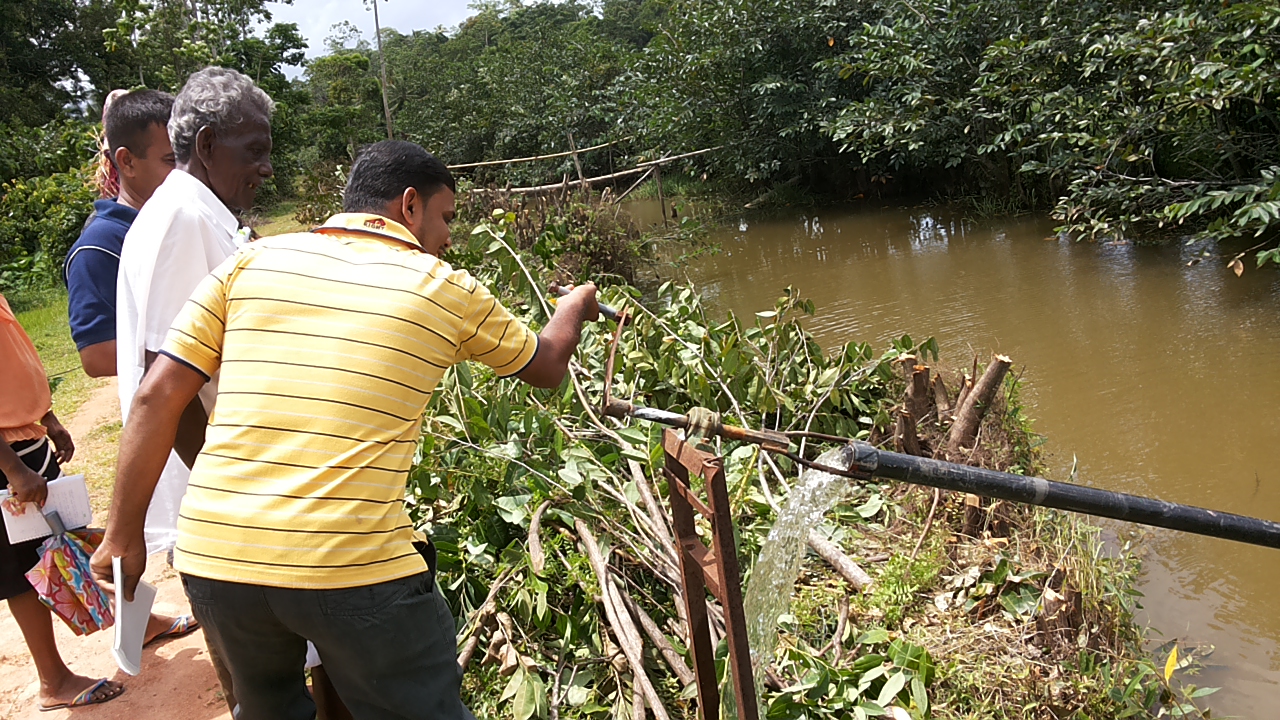- About Us
-
Who we are
-
- Publications
-
- ADPC Academy
-
MediaADPC'S NEWS
Strengthening Sri Lanka’s resilience to climate change and disaster. Strengthening Sri Lanka’s resilience to climate change and disaster.
19 Jul 2014
Matara, Sri Lanka
ADPC is currently engaged in a project funded by the Australian Agency for International Development (AusAID) on Mainstreaming Climate Information Application for Enhancement of Agro-Ecosystem Services and Functions in Nilwala basin in Sri Lanka and Lower Mekong basin in Vietnam. Under this project, ADPC has established an Agricultural Field Research Extension and Demonstration Center in Palatuwa’s Nilwala basin in Southern Sri Lanka.
 The aim of setting up this center is to strengthen the local communities’ capacity to tackle the challenges related to climate change and associated natural disasters, in particular drought, salinity, acidity and flooding, as well as creating awareness through information sharing and demonstration.
The aim of setting up this center is to strengthen the local communities’ capacity to tackle the challenges related to climate change and associated natural disasters, in particular drought, salinity, acidity and flooding, as well as creating awareness through information sharing and demonstration.As an activity within the project, a 3-day training course was
delivered in July at University of Ruhuna, Matara, Sri Lanka. The course was attended by around 35 participants representing
district and provincial offices of agriculture, irrigation, environment, and disaster management, among others. ADPC provided
resource inputs to conduct the training course.
The purpose of this training is to enhance the existing knowledge and skills of officials and professionals on ecosystems management, and restoration of degraded ecosystems. The training was to guide the participants to understand ecosystems, and think in an integrated manner with disaster risk reduction.
Participants were also exposed to understand the climate
and weather, and practical weather observation and interpretation of data to optimize agricultural operations to tackle climate change phenomena i.e; floods, dry and wet spells, heat waves) to improve the economic and ecological returns of the ecosystems.
It is intended that after undergoing the training workshop, participants will have enhanced knowledge and skills to assess the ecosystems and find the means and ways to improve the ecosystems health, through climate data application, technology interventions and community mobilization.As part of the training, a field trip to identify the drivers of ecosystem changes and to have one-to-one discussion with farming community to identify their problems and challenges was arranged.


Latest NewsRelated Trainings
-